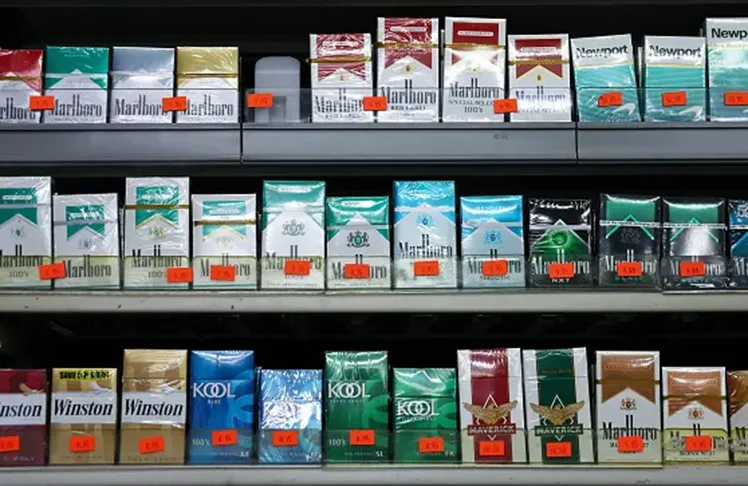
Data and research show that nearly all adults who smoke regularly took their first puff from a cigarette before their 21st birthday. That includes the 14% of Black people who are daily smokers.
To combat that trend and reduce the number of future smokers, the Food and Drug Administration last month activated new restrictions that hiked the minimum legal age for buying tobacco products — including e-cigarettes — from 18 to 21.
The rule is “another key step toward protecting our nation’s youth from the health risks of tobacco products,” Brian King, director of the FDA’s Center for Tobacco Products, said in a prepared statement. “Decades of science have shown that keeping tobacco products away from youth is critical to reducing the number of people who ultimately become addicted to these products and suffer from tobacco-related disease and death.”
Thomas Carr, director of nationwide policy for the American Lung Association, says although his organization is dedicated to respiratory health, it opposes laws “that punish underage people for the purchase, possession and use of tobacco products.”
“Increasing the ages is important for preventing tobacco use among youth. And it was certainly long overdue,” says Carr. But “we do think that there needs to be better services to help [them] quit, since they may have been able to smoke or use tobacco products when they were at an earlier age.”
The new FDA restriction, which took effect at the end of September, stems from a 2019 law that bans tobacco retailers from selling to anyone under 30 without seeing a photo ID to verify their age. The rule also permits cigarette vending machines only in 21-and-over locations that require age verification to get in.
Statistics show around 8% of young Black people currently use any tobacco product, compared with 11.0% of White youth, according to the Centers for Disease Control and Prevention. But this doesn’t account for young people who are getting tobacco from non-retail sources.
“Keeping tobacco products away from youth is critical to reducing the number of people who ultimately become addicted … and suffer from tobacco-related disease and death.” – Brian King, director of the FDA’s Center for Tobacco Products
The data supports that theory: more than 95% of U.S. adults who smoke daily began smoking before their 21st birthday. A 2020 Journal of the American Heart Association report found that smokers who start young are three times more likely to die prematurely, and the risk was highest for those who began before age 15.
Tobacco use kills approximately half a million people each year, and is the leading cause of preventable death and smoking-related diseases, such as heart disease, lung cancer or stroke. Black people are more likely than other demographic groups to die from smoking, according to the CDC.
But it’s likely that immediate efforts to enforce the rule will focus more on retailers than on young smokers themselves.
“In most African American communities that are targeted by the tobacco industry, you know you’re talking about convincing retailers that, you know, they shouldn’t just be selling it anyway,” says Carr.
However, another troublesome tobacco product remains on the market. Earlier this year, the FDA missed its deadline to ban menthol-flavored cigarettes. Roughly 85% of Black smokers smoke menthols, compared to 34% of white smokers. And the tobacco industry has a decades-long history of marketing menthol cigarettes to Black communities.
Although the agency banned other flavored cigarettes in 2009 it allowed menthol cigarettes to remain on the market, a move which anti-tobacco advocates oppose. Civil rights organizations former U.S. surgeons general, and anti-smoking advocates have urged the White House to stop the delays and end menthol cigarette sales and flavored cigars.
Black smokers face a much tougher struggle if they want to quit because menthol cigarettes are more addictive than non-menthols. It is estimated that banning menthol cigarettes could help prevent 300,000 to 650,000 smoking-related deaths over several decades. There’s no indication when the FDA will move forward with banning menthol-flavored cigarettes.















